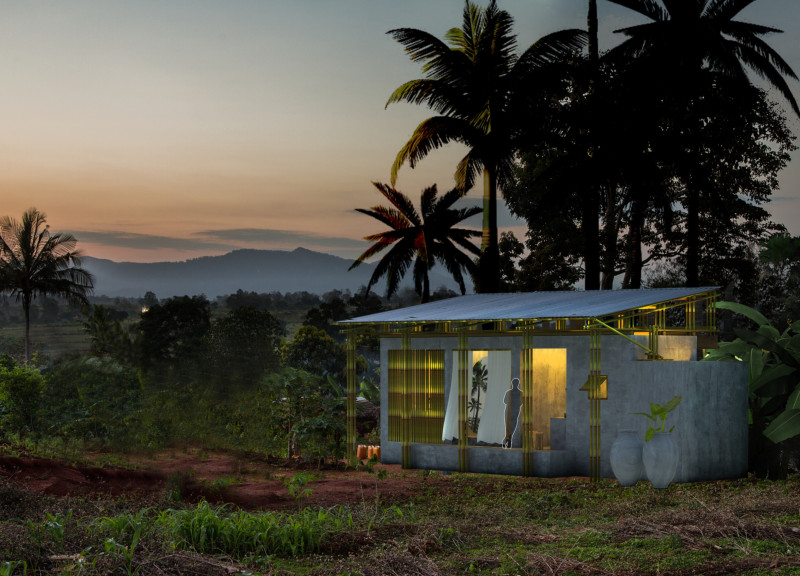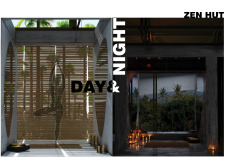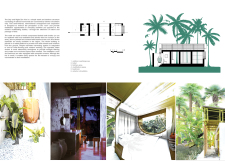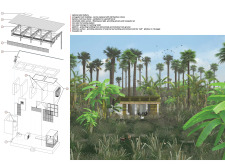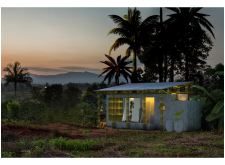5 key facts about this project
The Day and Night Zen Hut is a structure designed to foster mindfulness and a deep connection with the surrounding nature. Positioned in a quiet area, it serves as a space for meditation and introspection. The design emphasizes simplicity and functionality, creating an environment that encourages awareness of the present moment while supporting daily life.
Design Concept
The building uses a semi-internal, semi-external layout, with railroad rooms connected by exterior pathways. This setup reduces the separation between inside and outside, allowing for an enriched interaction with nature. Occupants can engage in meditation or other activities, all within an environment that harmonizes with the rhythms of the natural world.
Material Selection
Locally sourced materials play an essential role in the hut's design. Thick compressed baked earth bricks form the walls, which can also be complemented by available local brick blocks. The surfaces are finished with stucco paint for durability and aesthetic appeal. A bamboo truss roof provides structural support, aligning the building visually with its environment and emphasizing a commitment to sustainable practices.
Functional Features
Elevating the structure on a raised platform addresses concerns about wildlife and moisture from the ground. This design choice not only extends the building's lifespan but also incorporates a rainwater harvesting system. This system allows collected water to be used for toilet flushing and outdoor washing, thus enhancing its sustainability. Additionally, operable rattan screens facilitate sunlight control, enabling flexibility in how spaces are used.
Spatial Dynamics
The design organizes distinct areas for meditation and relaxation despite its compact size. This arrangement supports both personal reflection and communal interactions, creating a sense of connection to the surroundings. Mosquito screens in the meditation room and bedroom ensure comfortable living conditions while maintaining airflow.
Every detail contributes to an atmosphere that promotes peace and mindfulness. The building's facade integrates well with the environment, while interior elements are thoughtfully arranged to support a focused and serene experience for its users.


